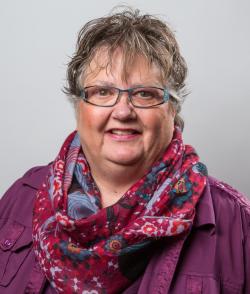This is an archive of news stories and research from the National Union of Public and General Employees. Please see our new site - https://nupge.ca - for the most current information.
"In spite of months of public complaints about the risks to Long Term Care residents from severe understaffing, and a critical report from the Provincial Ombudsman, which called on health regions to do more, it appears that the health regions are ignoring these public concerns and recommendations.” — Karen Wasylenko, President HSAS
 Regina (18 June 2015) — Two surveys conducted among Saskatchewan's specialized health care professionals who serve Long Term Care residents, confirm that health regions have understaffed these critical services for years, and have done nothing to fix the problem, in spite of a series of public complaints and investigations this year into the state of Long Term Care in Saskatchewan.
Regina (18 June 2015) — Two surveys conducted among Saskatchewan's specialized health care professionals who serve Long Term Care residents, confirm that health regions have understaffed these critical services for years, and have done nothing to fix the problem, in spite of a series of public complaints and investigations this year into the state of Long Term Care in Saskatchewan.
Health professionals see understaffing as hurting client care
“71% of the specialized health care professionals, who responded to an online survey from the Health Sciences Association of Saskatchewan in February, rated the Long Term Care services provided by health regions as Poor or only Fair. Using descriptions such as “pitiful” and “a disgrace” to describe the level of care, these professionals are very concerned about the state of services being provided to Long Term Care residents and their families,” Health Sciences President Karen Wasylenko said.
“A majority of our professionals identify understaffing as the number one issue contributing to a reduced level of Long Term Care services. Nearly 40% of those who responded to our survey had submitted formal requests to increase health care staffing in Long Term Care over the past five years, but nearly 73% of these requests had been rejected by their local health region,” Wasylenko noted.
Lack of specialists brings wide range of problems
“Professional understaffing is a direct threat to the quality of life for Long Term Care residents," said Wasylenko.
Understaffing of:
- Speech Language Pathologists means a lack of specialists, who can help residents learn to communicate again or assess swallowing, after a stroke
- Dietitians means no specialists to look after the hydration and nutrition needs of residents.
- Occupational Therapists means no specialists who can assess the seating needs of residents to prevent skin breakdown, and avoid wounds or bed sores that can cause pain and life-threatening infections.
- Physical Therapists means no help for residents to maintain or recover their mobility to prevent falls and injuries.
- Assessor Coordinators — the professionals who carry out assessments to determine a person’s eligibility for Long Term Care placement – has led to backlogs and delays in transferring patients from acute to long-term care facilities.
"All of these service failures, the direct result of professional understaffing in Long Term Care are unacceptable,” Wasylenko said.
Health region authorities ignoring problem
“Even more disturbing, in spite of months of public complaints about the risks to Long Term Care residents from severe understaffing, and a critical report from the Provincial Ombudsman, which called on health regions to do more, it appears that the health regions are ignoring these public concerns and recommendations,” Wasylenko added.
“In a follow-up online survey conducted in recent days, 80% of the specialized health care professionals who responded said their local health region has done nothing to improve Long Term Care services in the past few months, while another 11% actually say the situation has deteriorated since February! What is it going to take to force health regions to live up to their responsibilities?” Wasylenko asked.
Health Sciences Association of Saskatchewan is a member of the Canadian Health Professionals Secretariat.
More information:
Health Sciences Association of Saskatchewan
NUPGE
The National Union of Public and General Employees (NUPGE) is one of Canada's largest labour organizations with over 360,000 members. Our mission is to improve the lives of working families and to build a stronger Canada by ensuring our common wealth is used for the common good. NUPGE
